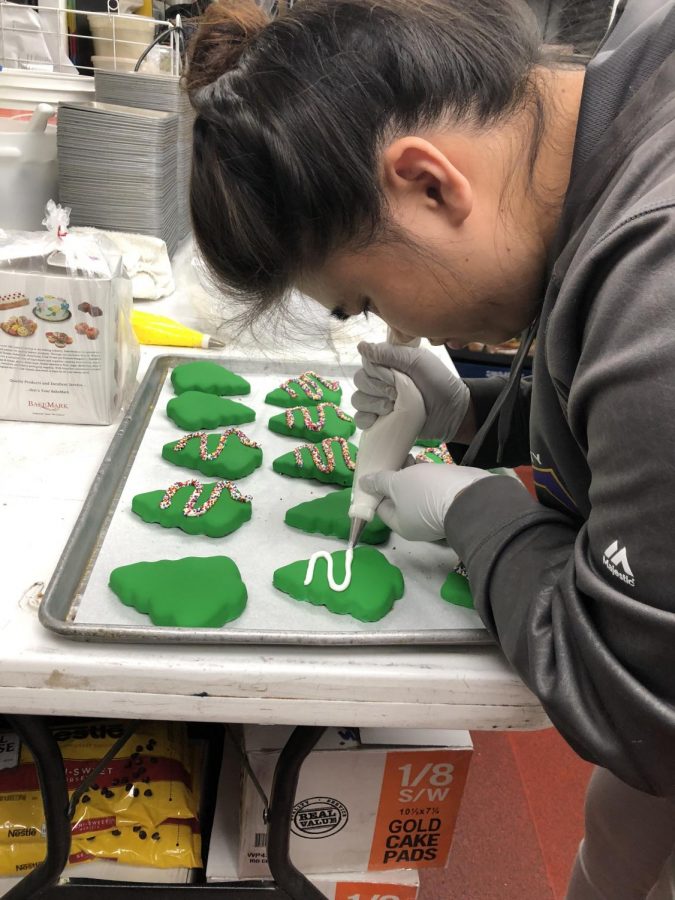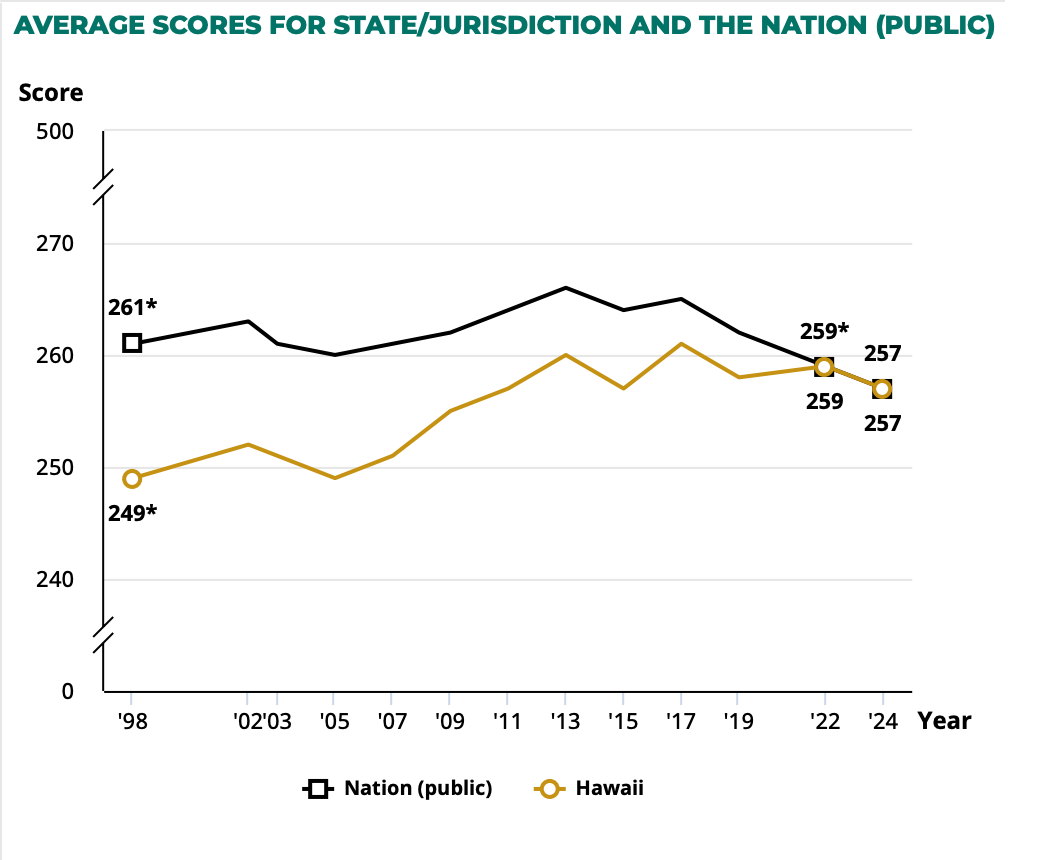Students with jobs learn life lessons, save money for college
Mid-Pacific senior Skylar Tanaka works at her family’s bakery part-time. Some students say after-school jobs can teach life lessons such as managing personal finances and balancing workloads.
December 12, 2018
While some kids jump in their parents car towards home after school, senior Skylar Tanaka is piping icing onto festive holiday cookies in the back of her family’s bakery.
Tanaka is one of many high school teens who work part time and attend school. While an after-school job can have benefits, some students said they found working and being a student came with sacrifices.
“On the weekends I work from 5 to 2, so I can’t go out a lot, which is a little sad,” said Tanaka.
This year, teen employment rates were down from previous years according to U.S. Bureau of Labor Statistics. About 37 percent of students in America worked this summer, which is much lower than the teen employment rate in the 1970’s, which was 60 percent.
Entrepreneurship teacher Peter Rowan said it is beneficial for students to get jobs. Rowan said it’s a great way to rule out things students don’t want to do in the future, and experience is important to learn how to work with other people.
“There are very few careers that are solitary in nature,” said Rowan. “Working on project teams helps students learn to work on projects in large organizations.”
Mid-Pacific students said they decide to apply for work to kill time, save money for college and to continue a family business. Krystin Jardiolin, a senior who cleans houses on the weekends, said she started work because she needed to become more independent.
“Especially with my mom being a single parent, I learned that I needed to pull my own weight so I could afford my school lunch money and textbooks,” said Jardiolin.
Employed students often learn valuable lessons from working, besides how to do their job. Schuyler Rowan, a senior who said he quit his job because of time-management, said his job at Safeway made him realize he did not want to the job for the rest of his life. The problem with working part-time is figuring out how to make time for schoolwork.
“It pushed me to want to do better in school so I could get into a good college and get a good job in a field that I actually want to go into,” said Rowan.
Students with shifts who get off late have to stay up doing work, and having to work on the weekdays adds a layer of stress. Sasha Krstic, a junior working at American Eagle, said students should get a job to have the experience of working and making money.
“But I wouldn’t let it become your priority,” said Krstic.
When deciding to get a job, students have to consider their schedule and if they are able to handle working and school at the same time. Rowan said if he wasn’t working, he could have started out the school year stronger.
“If I didn’t have work, then I probably wouldn’t have had all the stress in the beginning of the year” said Rowan.
Students not only find life outside of work hard, but they face challenges on the clock as well. They discover that difficult customers, unfair bosses, or being a teenager, are all a part of having a employment. Nikki Wong, a junior who worked in the restaurant business, said she was being treated as a child.
“Since I was younger than the rest of the staff, everyone was really mean to me, which made my job less enjoyable,” said Wong.
Last year, students gravitated on taking jobs in restaurants and hotels. 34 percent of teens out of the 6.2 million who worked this summer had jobs in accommodations and food services, according to Pew Research Center. Less teens worked in retail, causing a 35 percent drop from the year before.
Preparation for full-time employment is a key benefit of teenagers having a part-time job, according to the website Kumon. Jardiolin shared what she thinks employers look for in an employee.
“When you’re at a job you want to make sure that you’re persistent and you communicate well,” said Jardiolin. “Be straight forward and communicate because that’s what employees look for.”







